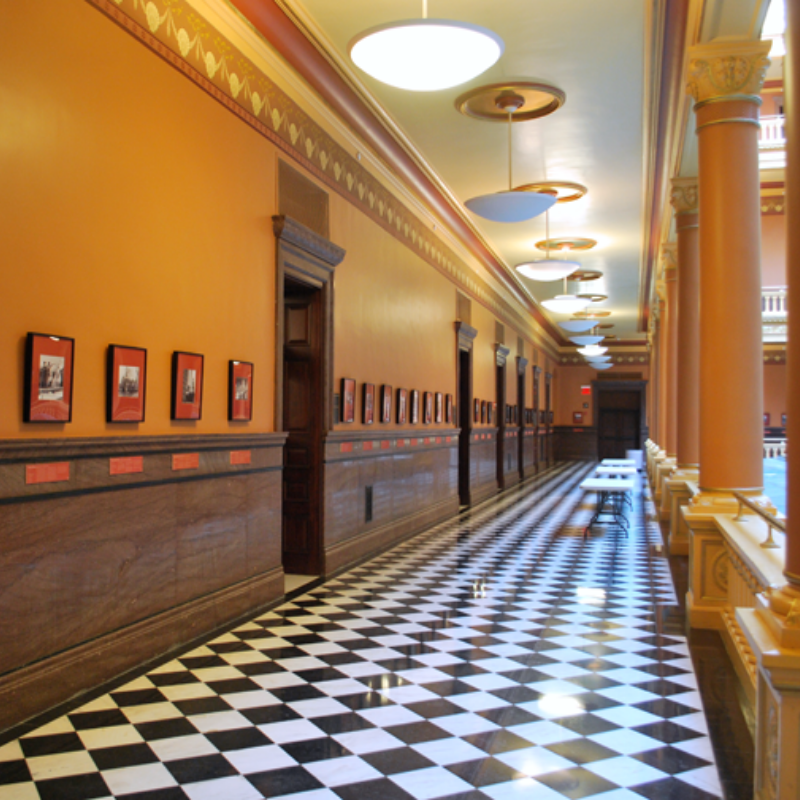Searching for humanity/the humanities: Why I pursued a Ph.D.
Searching for humanity/the humanities: Why I pursued a Ph.D.
In this post: I talk about the emotional toll all of this has had on my mentality and life in general, and how despite all of that I'd do it all over again.
Next week: A retelling of my day in court and what I learned.
Last week: I talk about my dissociation from the legal drama I was put through, and what it teaches me when it rears its ugly head.
As my legal battles perhaps draw nearer to a close (but, of course, now that I’ve written this, it will most likely drag on for another 6 months—special s/o to the plaintiff-turned-defendant in my case), I’ve been thinking a lot about endings and beginnings. How I ended up here has been an oft-visited thought pattern in my mind of late.
For the record, I genuinely regret nothing. And not just because I did nothing wrong. But don’t misinterpret my hard-won ‘no regrets’ mentality—it does not diminish how painful this has been, and how it has wrecked my life in every way possible. This process, of defending myself, yet again, from the person who exploited me and my work, is exhausting. And, nevertheless, I’m still not sorry.
I cried* when I read Eva Hagberg Fisher’s account of defending herself from her sexual predator-professor. I had to take many pauses in reading it. It was as if I was reading my internalized thought process aloud to myself. My cultivated sense of disassociation from the nightmare that is my recent past was no longer possible. The old, rotting wounds from my battle burst open again. I can only hope that this is how people felt when they read about my story.
But, let’s go back to the start of my Ph.D. pursuits for a minute:
Crouching over a concrete floor in the basement of my studio art department’s brand new industrial building, I listened to my art history professor and his doctoral candidate discussing a classmate’s drawings. They were abstracted, yet beautifully drawn depictions of the icons of suburbia. I was trying to puzzle out what I thought of the floating mailboxes and the repeating loops of planned communities when I realized I was in love--- with art. With thinking about it, with writing about it, with researching it. With mulling it around, turning concepts over in my mind to see how they worked upside down, and then right-side up again.
Most of all, I was blindly in love with talking about the things that only art can express—the untraceable and unquantifiable aspects of our shared humanity.
Forgive the wax poetic of this post, but it is, at the very least, honest. This is why I applied to Ph.D. programs in art history. My straight male professor at UVa taught me feminism (let’s not be essentialist y’all, yes, men can teach feminism and, sadly, many women cannot). He encouraged me to pursue tantalizing concepts in both my art practice and my writing. I thought this was indicative of the whole field of art history. Which is so preciously naïve that it can only be explained by the fact that I was an intellectual infant, merely 21 years old.
But it was that tenant, or perhaps tenants, that led me to pursue a Ph.D. I wanted to make feminism part of the art historical canon, I wanted to broaden art history away from its white male Enlightenment roots. And I was hungry. I was willing to put in the hours. Y’all-- I spent 4 years reading Gayatri Spivak. She’s a genius, but dense AF. What I’m saying is-- I was whole-heartedly invested in building, into both methodology and pedagogy, philosophy of difference.
This is why the end of my graduate career was so heart-breaking.
And, I suspect, why alt-academics, PhDs, and ABDs cannot get over the cruel reality of corporate academia. It was not just our career, it was our way of being in the world, a flexible and continually evolving belief system that fostered intellectual curiosity and rigorous debate.
We were told or perhaps sold, a lie. Repeatedly.
The lie goes something like this (feel free to chime into the melody, as it’s invariably well-known by all of us by now):
By the time we finished our PhDs, there was going to be a massive turn-over of tenured professors, who nearing retirement, would be stepping down and ushering in the new guard of intellectual thought. What a brave new world that was waiting for us at the end of the agonizing process of earning a Ph.D.!
I remember my father emailing me an article about how, in the next 10 years, there would be a 50% turnover rate in academia. I read that article as a first-year graduate student, in 2010. I believed it because I needed to, and, at the time, had little reason to suspect that was not the case. That it would, in fact, never be the case.
Besides, I, with a focus on contemporary art and global feminisms, had a ‘sexy’ (read: actually relevant and thus not nearly scholarly enough to be taken seriously) topic—one that I was told over and over throughout my graduate career would most assuredly lead to me getting a job. As a faculty member.
At the moment, I’m not particularly interested in the origins of that myth, but rather in its cultural repercussions. How it kept us blind. How it betrayed us.
We failed to rise to the occasion of defending the value of a humanities degree—or, to put it simply, the study of what makes us all human. Or, as they say in business writing-- “human-centered” or “human-focused” (all word vomit, btw, and further proof of the need for the critical thinking skills that a humanities education begets).
It seems we’ve lost our goddamn ability to understand the complexity of humanity in favor of reducing human characteristics down to diagnosable bullet points.
And so, my fellow scholars turned academic fugitives, that is why they call this a ‘struggle.’
Rage on my friends, make a difference in whatever way makes sense to you. Refuse to believe the dogma of academia.
It’s too late to save academia from itself, but it’s not too late for us to make meaningful contributions to society. It will just take a little more imagination and even more hard work. I have faith in you.
* Yeah, yeah white women’s tears. I hear you. But also—despite how frequently I mention crying, you can ask any of those who know me well—I never cry. So when I say I cried, alone, I say it as an indicator of how much it moved my stone-cold cynical and jaded heart.
-Allison Harbin
















In this post: The real story of what happened after I left academia, on the loss of my academic career and feeling adrift.